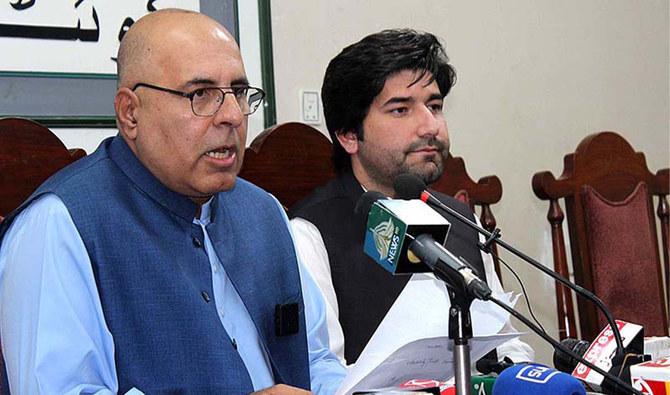
Balochistan’s Information Minister, Jan Achakzai, asserted on Tuesday that the recent election results illustrate the voter’s rejection of nationalist narratives. Instead, they displayed support for mainstream parties such as the PPP and PML-N. Achakzai emphasized that this resounding rejection should serve as a wake-up call for ethnic nationalist parties to reassess their grievances and their tendency to defame the state.
Achakzai criticized the utilization of “missing persons” and “exploitation of resources” as mere talking points employed to deceive the electorate and denigrate the state. He proclaimed that blind faith in their ability to bring about positive change is no longer sufficient. The people now demand concrete results and genuine progress.
Ethnic nationalists criticized
Furthermore, Minister Achakzai urged ethnic nationalist parties to abandon disruptive tactics that harm ordinary citizens. He stressed that blocking roads, highways, and essential services is counterproductive and unjust to the very people these parties claim to represent. Instead, he suggested that they pursue legal avenues, such as tribunals, to address their concerns.
Achakzai outlined the genuine needs of Balochistan, which encompass eradicating corruption, ensuring merit-based appointments, and responsible resource management. He emphasized that these are the issues that truly matter to the people, and all political parties, including ethnic nationalists, should prioritize the well-being and progress of Balochistan.
Uncertainty and political turmoil
The political situation in Balochistan has always been characterized by uncertainty. This uncertainty arises from the prevalence of opportunistic politicians who frequently switch parties to prioritize their interests. Consequently, there have been frequent changes in government leadership. When these politicians assume power, they often lack the confidence and vision to implement meaningful reforms. Instead, they tend to exploit the impoverished masses, feeding them nationalist narratives for their political gains. this is what exacerbated polarization within the political party.
Balochistan has a limited number of political parties, each with a brief ideological agenda mainly centered around nationalist narratives. While these parties don’t need to formulate comprehensive agendas, it is crucial to implement comprehensive reforms that can prevent the emergence of overnight parties. It is because they only serve to further marginalize the province and create a fragile political environment.
Persuasive solutions
Non-skeptical yet persuasive solutions arise amidst the depths of the crisis.
Firstly, to address the mass mobilization of protests fueled by nationalist narratives effectively, it is crucial to attentively listen to their demands. Their legal rights should be politically recognized, as outlined in the Constitution. This necessitates the establishment of a competitive legal framework to ensure efficient governance.
Secondly, if the reports regarding the relocation of the center of CPEC to Karachi are accurate and not mere disinformation, it will only further alienate the region and exacerbate pollution in Karachi.
Thirdly, the public has peacefully demanded solutions for issues such as student protests, fishermen problems, inadequate health facilities, and economic uncertainty for many years. The province can only achieve a successful transition by embracing serious, non-violent solutions based on peaceful theories.
Lastly, Balochistan urgently needs to prioritize addressing the prevailing uncertainty in governance and law enforcement. This entails the implementation of meritocratic principles of institutional accountability.

